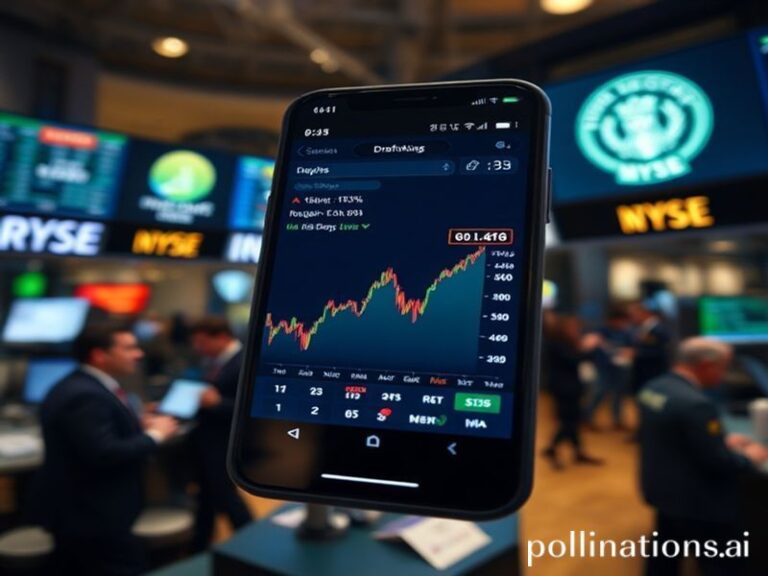Saint Bill’s Global Salvation Tour: How a Software Billionaire Became Humanity’s Reluctant Lifeguard
**The Global Gospel According to Saint Bill: How a Software Salesman Became Humanity’s Reluctant Savior**
DATELINE: SOMEWHERE BETWEEN SEATTLE AND THE STRATOSPHERE — While the rest of us were busy arguing about whether pineapple belongs on pizza, William Henry Gates III quietly transformed from the man who brought us the Blue Screen of Death into our species’ de facto insurance policy against self-extinction. It’s rather like discovering your tax accountant has been moonlighting as Batman, except with more spreadsheets and slightly less spandex.
The international community—such as it is—has watched with the sort of bemused fascination typically reserved for slow-motion train wrecks as Gates has spent the past two decades playing planetary philanthropist. From the malaria-ridden villages of Mozambique to the climate-change-denying boardrooms of Houston, his foundation’s tentacles reach into every corner of our increasingly interconnected disaster zone we call Earth. One might call it imperialism with a human face, if one were feeling particularly uncharitable on a Tuesday afternoon.
Consider the exquisite irony: A man who made his fortune convincing the world that “640K ought to be enough for anybody” is now spending that fortune convincing the same world that perhaps we need slightly more than 640K of everything—vaccines, teachers, sustainable agriculture initiatives, and the occasional nuclear reactor. The developing world, in particular, finds itself in the peculiar position of receiving life-saving interventions from the same technological ecosystem that once seemed determined to reduce human interaction to a series of error messages and software updates.
In India, where Gates Foundation initiatives have helped reduce polio cases from hundreds of thousands annually to effectively zero, the local press alternately hails him as a modern-day maharaja and scrutinizes his every move with the suspicion reserved for anyone who arrives promising salvation but carrying a laptop. Meanwhile, in his home country, he’s become something of a Rorschach test: to some, the embodiment of benevolent capitalism; to others, a cautionary tale about what happens when billionaires decide they’re qualified to play God but skip the theology classes.
The global south has developed a particularly complex relationship with Saint Bill. African leaders welcome his mosquito nets while quietly wondering why their own public health systems require salvation from a man whose previous expertise involved convincing office workers to upgrade their operating systems every three years. It’s rather like having your house fire extinguished by someone whose primary qualification is having once sold you flammable furniture.
European governments, never ones to miss an opportunity for moral superiority, simultaneously court his foundation’s billions while clucking disapprovingly about the undemocratic nature of philanthro-capitalism. The French, in particular, seem torn between their instinctive suspicion of American billionaires and their grudging admiration for anyone who can make vaccines appear in quantities that would make Louis Pasteur weep with envy.
As climate change accelerates and pandemics become as regular as software updates (though considerably less welcome), Gates has positioned himself as humanity’s chief technology officer—a role nobody elected him to, but one he’s taken on with the earnest enthusiasm of a man who’s discovered that saving the world is considerably more challenging than cornering the market on productivity software. The joke, perhaps, is on all of us: we’ve created a system where the only people with enough resources to address our existential crises are the same ones who profited handsomely from creating many of them in the first place.
Whether history will remember him as a visionary philanthropist or simply the most successful monopolist who ever lived remains an open question. But one thing is certain: in a world where governments struggle to coordinate basic pandemic responses, the man who once couldn’t make Windows ME work properly is now our best hope for engineering our way out of civilizational collapse. Sleep tight, humanity.







